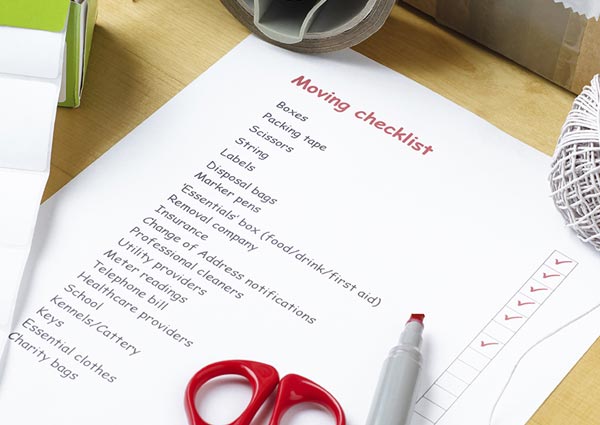If you’re relocating to one of the world’s most populated cities with children, certain anticipated obstacles are simple to plan for, as well as some unforeseen snags that you should be aware of.
But, if you know some useful and practical moving with children tips, your job will become so much easy and more convenient.
It is effortless to hire moving services in India for easy packing and moving. Still, shifting your home is not easy; it requires being more efficient with your time and planning ahead of time to prevent unwanted difficulties. If you’re relocating with kids, you can certainly plant for some of the coming anticipated obstacles and some unexpected snags that are worth having on your radar ahead of time, so they don’t catch you off guard. And, all this can be done with ease and in the simplest way with some tips for moving with children.
Helping kids cope with change entails recognizing their worries and feelings, listening to them, and putting out expectations in terms they can comprehend. Make your message about the shift positive and clear, and repeat it frequently in the run-up to the transfer. These are some of the moving tips for families when they plan to take their kids and toddlers on a relocation experience.
Here, we have curated this table with tips for house moving with children according to the days remaining for the final moving day. So, check out moving day countdown to make your shift with kids easy –
Moving With Kids Checklist – Thepackersmovers.com
| Moving Time | Tips for Moving with Kids |
|---|---|
| 8 Weeks Before | • Research Schools • Discuss the Shifting With Your Kids • Make a Family Bucket List |
| 6 Weeks Before | • Notify Current Schools about Your Move • Organize Family-Friendly Activities |
| 4 Weeks Before | • Visit Your Child’s New School in the City |
| 3 Weeks Before | • Host a Goodbye Party for Neighbors • Arrange for Child Care Facility on Moving Day |
| 2 Weeks Before | • Keep Medical Records Handy |
| Day Before | • Pack a “First Night” Bag for Them |
| Moving Day | • Invite Kids in One Part of the House • Organize Moving Day Activities with Kids |
| After Moving | • Give Your Kids a New House Tour
• Unpack Your Kids’ Rooms First • Set Up Outdoor Activities • Let Your Kids Choose Wall Paint Color • Set Ground Rules • Meet the Neighbors |
1. View the Move through Eyes of Your Kids

- Adjust your perspective to understand how your child perceives the transition, whether you are moving with children internationally or to a nearby location in India.
- Will they be abandoning the location where they’ve lived their entire lives? Are they being forced to leave relatives and friends they are accustomed to seeing on a daily basis? If this is the case, it can be frightening.
- Toddlers thrive on structure and habit, so not only will they miss their home, but they may also be disoriented as a result of the numerous changes going on around them. It is common for individuals to display unusual or irritating behavior at this time.
- A kid may feel powerless when they realize there is nothing they can do or say to change the reality that they are moving.
- Many toddlers physically act out when faced with a major change, and it is critical that they feel heard and accepted even during an outburst.
- You will only be able to address and help your child if you understand the cause of their negative behavior, so be patient with them while they cope with their emotions.
- They may require a bit extra care and understanding, which may place additional demands on your time, so be prepared.
2. Discuss Shifting With Your Kids

Moving may be difficult for toddlers, so start talking to them about it as early as possible to help prepare them. Your toddler may not completely comprehend the notion of moving into a new house, but it is critical to inform them ahead of time. Preparing your child for the transfer will significantly influence how smoothly they will adjust once in their new home.
Here are some tips to help you have a pleasant talk with your child:
- Assure them that everything will remain the same in their new house. Inform them that their routine and family structure will not change.
- Make it clear that you will be taking all of their belongings with you. Their toys, blankets, and furnishings will not be abandoned.
- Try telling them a tale to explain the problem in words they can understand.
- Bring yourself down to their level. Pick up your youngster or sit next to them to create eye contact.
- Tell them what to expect on the relocation day without going into too much detail.
- Slow down and look for nonverbal clues from your child so they know you’re paying attention.
- Without using baby babble, regularly speak and in full words. Allow them time to properly absorb what you’re saying by slowing down your words.
- Make actual options for your child, so they don’t feel helpless. Do they wish to bring something special with them? Do they want to dress themselves on moving day? If yes, then make sure to fulfill their genuine wishes.
3. Be Patient with Kids

Despite your optimistic discussions and well-intended neighborhood playdates, your kids may be concerned about the relocation. That is very natural, so enable them to share their concerns. Answer any questions they may have regarding the relocation and be ready to offer them the space they require. Keep your responses brief and straightforward. They will ultimately acclimate to your new house, although it may take some time.
Here are some pointers on how to be patient with your kids:
- Choose your fights wisely. Because this is already a frantic period, your child’s behavior will be less than ideal. Accept that certain rules will be broken.
- Allow yourself some downtime to decompress. When things become too much, have a cup of tea or go for a brief stroll.
- When you require assistance, ask for it. To keep your child’s routine regular, you may need to hire a babysitter or an additional set of hands while you pack. That’s fine!
- Count from 1 to 10. When you’re irritated, take 10 seconds to calm down before acting on it. It will do wonders for your patience.
- Before you go, spend some time with your child at home. Make some memories in this house and savor these times.
4. When Moving With Kids, Keep Safety in Mind

It is critical to keep your child safe during and after a relocation. If at all feasible, attempt to “baby-proof” your home before the arrival of your child. Your youngster will want to explore their new surroundings, which increases the likelihood of them getting into trouble. Here are some safety steps you may do to keep your child safe whether you are moving with children abroad or somewhere in the country:
- Put away any cleaning materials or anything else that your toddler may eat.
- Avoid stacking boxes too high or leaving heaps of items lying about.
- Bring your first-aid kit with you when shifting, rather than storing it in a box.
- Put your emergency phone numbers into your phone or write them out and post them on the fridge.
- Create a secure environment for your toddler to wander freely straight immediately.
- Allow your youngster to explore each room as it is put up. To keep them away from undesirable locations, make each room a surprise.
- Remove your youngster from the house while the furniture is being assembled. This is an excellent time to visit that neighborhood park you’ve been talking about for the previous month.
- Keep cables and scissors out of your toddler’s reach.
5. Allow Enough Time to Unpack and Settle in

- It’s critical to provide a sense of familiarity for your child as soon as your possessions arrive at your new house.
- If at all feasible, avoid throwing out old furniture or making immediate changes for your youngster.
- To offer them a sense of security, unpack their belongings first and immediately get out their favorite book or toy.
- It may be tempting to immediately bring out your dishes or clothing, but this tiny gesture of compassion sets the tone for your first few days in your new home.
- Try to keep your child’s schedule consistent throughout these days. Setting up a new house is a major undertaking, and you may be feeling overwhelmed, so consistency may be beneficial to you as well.
- Feed and bathe your little ones at the same time every day, and make time to play with them.
- During the first few weeks of your new living environment, your child may want more assurance and calm from you than usual. Make yourself available to them every day.
- Reduce your work hours or postpone dinner arrangements until your youngster feels at ease in his or her new home. Unpacking can wait; read them a few more goodnight tales.
- For easy home relocation services, you can always hire home relocation service providers from a reliable and genuine source.
6. Take Your Kids to New Community before Final Move

- You may start getting your toddler excited about the move once they realize nothing bad will happen. If possible, take them to your new area and show them around. Is there a park nearby? Take them there!
- Make positive connections with relocating to a new region, and your child will regard it as an adventure rather than a setback.
- When relocating with children, tour your new neighborhood before settling in.
- Organize a playdate in the new neighborhood or go to the local playground to get to know the kids.
- Make them motivated about the relationships they will form and nurture in the future. This step is more important and crucial when moving with children overseas.
- To make your relocation more tempting, relate it to the enjoyable folks in the new neighborhood.
- Have you decided on a new daycare or preschool in your new neighborhood? If this is the case, take your child there to meet the caretakers and teachers, so they know what to anticipate on their first day.
- If you’re relocating a great distance and won’t be able to bring your child with you, try teaching them about your new town, city, or province.
- Show them images and tell them about all of the exciting things that will await them once they relocate. Make the tale about the new place, not the old one.
- Make a list of the parks, ice cream stores, libraries, schools, and friends’ homes that will be waiting for them when they relocate.
8. Checklist for Moving With Toddler

Moving may bring a family closer together and show you how your child handles stress. Your child will realize that you will be a constant in their lives no matter what happens around them. You can put your child up for success in your new home and in their future by being patient and paying close attention to their needs.
Moving is thrilling and tiring, but it is also manageable if you plan ahead of time. So check out this given moving with kids checklist to help you stay on track:
- Discuss the relocation with your child ahead of time.
- Make the relocation a family affair.
- Allow your child to communicate his or her concerns about the transfer.
- To generate happy thoughts, take a tour of your new neighborhood.
- Keep a timetable for your youngster.
- Before, during, and after the relocation, surround your youngster with their favorite items.
- Your child’s belongings should be packed last and unpacked first.
- Make a safe area in your new house and store anything that might be hazardous.
- Moving may be difficult, and everyone handles it differently, but it can also be a wonderful experience.
9. Moving Late At Night with Children

- While the other parent or an approved friend oversees the rest of the relocation and signs off on delivery documentation, one parent can settle the children for the night.
- It’s also a sensible alternative for parents who have already spent numerous late hours unpacking and moving furniture while managing their other obligations.
- Consider the timing: if the movers don’t arrive at your house until 3 or 4 p.m., and it takes them 2-3 hours to load the van, depending on how much furniture you’ve planned for them to deconstruct, they won’t be on the road until it’s practically bedtime for your children.
- When your movers arrive at your new address, they’ll want to unload carefully, reassemble goods, and position furniture, which might take another 2-3 hours.
- As long as someone allowed to monitor this aspect of the move is present at your new residence, they can lock up after the movers depart and drop you the keys, or meet you there in the morning after everyone has had a full night’s sleep and breakfast.
- Instead of tears, short tempers, and tiredness, it makes starting your new chapter a lot more comfortable and enjoyable experience for everyone concerned.
- If you decide to go with the hotel option, work up a layout plan with your moving company ahead of time so they can arrange furniture pieces where you want them and don’t have to phone you to confirm where each bed should be set up.
- If you want to be certain, a video conference will allow you to double-check final preparations before the movers leave.
10. Interact With Movers

- If you’re relocating with a family, it’s strongly advised that you hire pros to perform the heavy lifting rather than attempting a DIY project.
- A little due diligence may go a long way at this point. Make a selection of three to four moving firms and conduct some internet research, including looking at Google reviews, asking the relevant questions, and examining their terms and conditions for any last-minute adjustments, like the refund of a deposit.
- Check their compliance and regulatory qualifications, and decide whether you need supplementary insurance for valuables.
- Affordable flat fee choices from movers such as Thepackersmovers can provide you peace of mind that you can stay within your budget while having a safe and dependable team handle your household things.
- Some movers can deconstruct and reassemble critical objects such as mattresses as part of their service, allowing you to enjoy a decent night’s sleep at the end of the day.
- Professional movers will also pack your TV and supply wardrobe boxes for the day, so you don’t have to worry about your clothing arriving wrinkled or damaged.
- Before finishing your booking, make sure to inquire about any additional fees that may apply on the day.
- When it comes to your budget, a few hundred dollars saved by hiring a less fastidious mover is not worth it if something goes wrong.
- There are numerous reasonable moving alternatives. As long as you make sure they won’t surprise you with additional fees on the day, you may continue packing your house until the movers contact you closer to the day to confirm their arrival time.
Moving is difficult at any age, but it may be especially stressful for children who are not involved in the decision-making process. Whether they are toddlers or teens, moving with children usually presents unique obstacles.Moving a toddler has its own set of issues, in addition to uprooting a teenager or changing your child’s school. It’s critical to communicate to your child that they will not be leaving their bed and toys behind and that you will all be there as a family when you move into your new house. The more they comprehend this, the simpler it will be for them to accept this shift in their lives.
Are you ready to make a move with kids? Contact Thepackersmovers.com today to hire movers in USA, UK, UAE, and across India for a no-obligation guaranteed flat-rate relocation quotation for moving with children Washington Stateor anywhere in the world and that too with utmost convenience.
- Cheap And Best Interior Designers In Mumbai - August 23, 2022
- Best Residential Areas And Places To Live In Delhi - July 9, 2022
- The 10 Best Places To Live In Gurgaon - June 25, 2022

